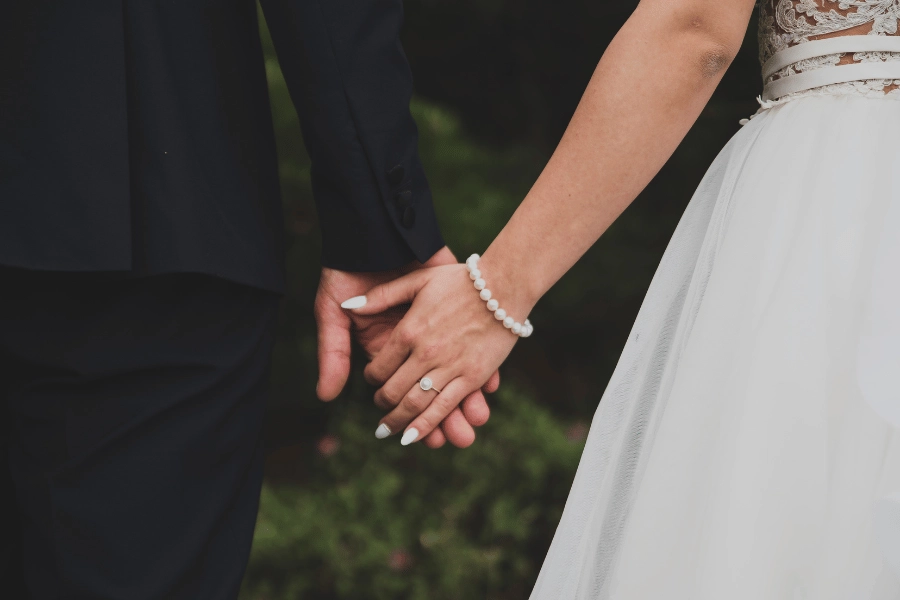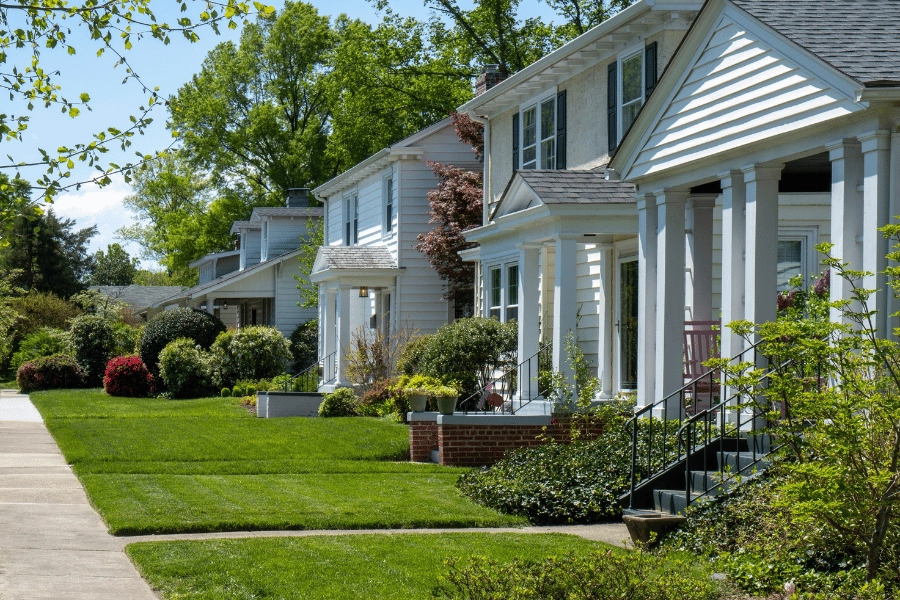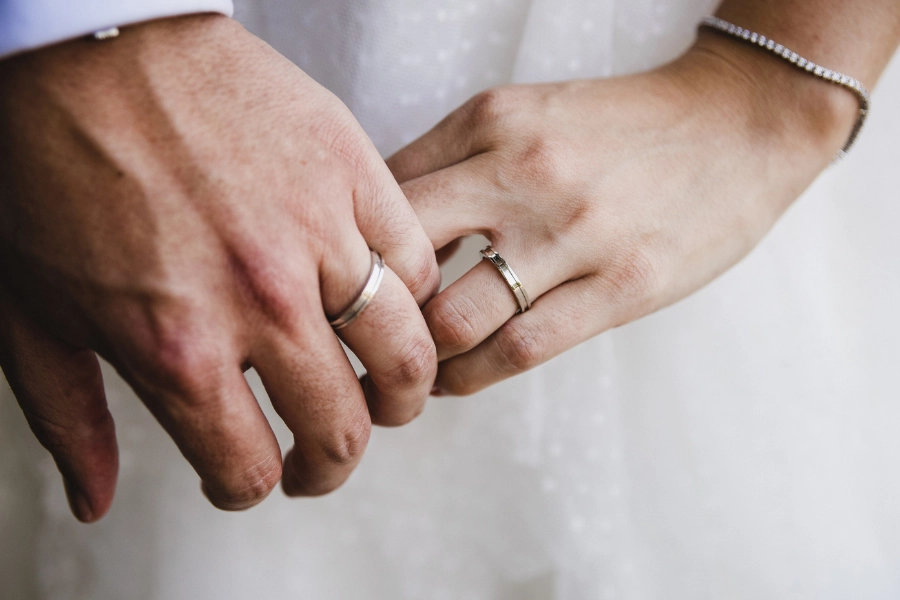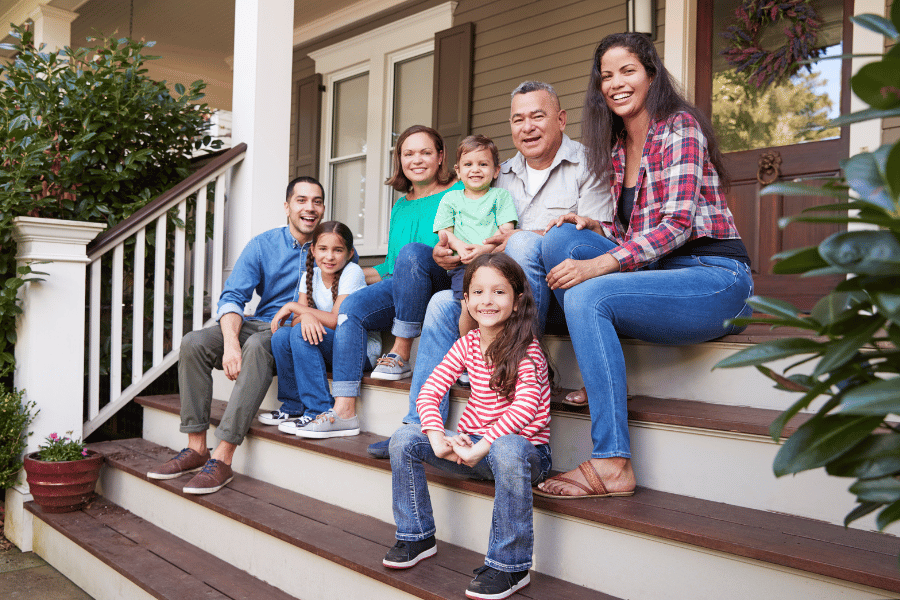Marital Status Trends in the Real Estate Market
Does marital status affect the housing market? Here are current marital status trends, and learn how different relationships play a role in home-buying decisions.
Marriage rates are plummeting globally. The median age of first marriage has also increased significantly, with brides averaging 28.4 years and grooms averaging 30.2 years in the United States.
The marriage rate in the United States has declined by nearly 60% since the 1970s, and it was found that one in four American adults who are 40 years old have never been married. As of July 2023, there were about 133.1 million married adults in the United States, a record low.
Common factors contributing to the decline in marriage rates include a changing economy, more women seeking higher education opportunities and pursuing careers, and other adult living arrangements, including cohabitation and single-person households, which have become more common in recent years.
With fewer people getting married, many wonder how marriage rates affect the housing market. Interestingly, marriage rates and homeownership are linked in several ways since the likelihood of marriage and divorce are known to impact homeownership rates and home values directly.
Check out these interesting marital trends and their impact on the housing market
1. Married vs. Unmarried Couples
Married couples are the most likely to become homebuyers. In 2023, 61% of homebuyers were married, while only 10% were unmarried. The average age of married homebuyers was 50, while the average age of unmarried couples was 37.
Among all homebuyers, 79% purchased a detached single-family home, 8% purchased a townhome or rowhome, and 4% bought an apartment or a condo. On the other hand, 83% of married couples specifically purchased detached single-family homes, and 84% of unmarried couples purchased a detached single-family home.
Due to the rise in home prices and mortgage interest rates, married and unmarried couples tend to have a leg up over single home buyers. Their combined earnings and savings can help them afford home payments and qualify for a better loan.
Married couples who purchased a home in 2023 typically bought a house with a median of 2,050 square feet and had a household income of $121,900. Alternatively, unmarried couples who purchased a home typically bought a house with a median of 1,750 square feet and a household income of $115,600.
According to 37% of married couples and 48% of unmarried couples, a significant life change, such as marriage, an addition to the family, or retirement, is the factor that contributes the most to a move and homebuying decision.

2. Newly Married Couple Trends
Nowadays, many couples decide to wait on marriage and focus on homebuying first. While some may not marry at all, others are willing to delay marriage until they are financially stable and have gone through the home-buying process.
The percentage of unmarried couple homebuyers has steadily increased over the past two decades. In 2023, about 555,000 unmarried couples bought their home the previous year, further indicating that more and more couples prioritize finances over a wedding.
Unmarried couples are also more likely to make financial sacrifices to obtain homeownership than married couples due to their less combined buying power on a mortgage application. Common financial sacrifices unmarried couples make include cutting spending on non-essential goods, entertainment, and clothes. Unmarried couples often delay vacations and obtain a second job to purchase a home together.
Purchasing a forever home or a starter home with a loved one is considered a wise financial decision since the average cost of an engagement ring is $5,500, and the price of a wedding in the United States is around $33,000.
In the debate between marriage and mortgage, many couples rely on their wedding guests to help fund their first home purchase. According to the National Association of Realtors, 85% of couples over the last two years asked for money on a downpayment for a home instead of traditional wedding gifts. An estimated quarter of first-time homebuyers used a gift or loan from friends and family on a downpayment.
While many newly married couples choose to purchase a home before marriage to get started and overcome the barrier to entry into homeownership, more than two-thirds of married Americans buy their first home with their current spouse within the first two years of marriage.

3. Marital Status and Housing Demand
Marital status is a common factor in housing demand since marriage is often a significant event that can lead to a home purchase. While the number of people choosing to get married is declining, the demand for homeownership has not been affected since most people still desire to own a home, whether in a relationship or not.
Homeownership is considered part of the American Dream since it symbolizes financial stability and independence. Most people view homeownership as a huge life milestone and tend to work hard to buy a home. While the percentage of unmarried couples and single adult homeowners rises, married couples continue to benefit the most when purchasing a home.
There are many reasons why married couples decide to buy a home together. Owning a home allows couples to build equity over time and provide financial security for the future as a long-term investment. Homeownership offers a sense of security and stability, and married couples are more likely to have children and want larger homes to grow a family.
It is important to note that many previously married adults are among the unmarried population and may directly impact housing demand and homeownership rates. Whether this population of adults is widowed or divorced, many previously married adults might be 'legacy' homeowners, meaning they bought the home while married and have remained in it as new singles.

4. Marital Status and Type of Neighborhood
There is an interesting correlation between marital status and the type of neighborhood that a person chooses to live in. Most married couples gravitate toward family-friendly neighborhoods in suburban areas with large homes and good school districts. Prioritizing safety and low crime rates, most married couples want to live near child-friendly amenities, restaurants, parks, and community events if they are growing their family or already have children.
Older married couples and retirees tend to opt for communities in quiet areas with low crime rates and access to quality healthcare facilities. They usually want to move to a retirement community or a neighborhood with access to fun recreational activities, dining options, and local events.
Conversely, single individuals and young unmarried couples are more likely to live in bustling urban areas with diverse housing options. Younger singles and unmarried couples tend to value a fun social scene, nightlife, public transportation, and access to entertainment venues over quiet communities and large single-family homes.
The life stage and housing needs of couples and single individuals are important factors that tend to influence the type of neighborhood chosen. Young couples are the most likely to put down roots in affordable areas where they can find a home fast, meet new people, and have fun.
Single individuals tend to be the most drawn to walkable neighborhoods in large cities and desire to be close to friends and family. When considering location preferences, unmarried couples and single individuals have more of a desire to buy a home conveniently located near work, shopping areas, veterinarians, and pet-friendly amenities.

5. Benefits of Marriage For Homeownership
Married couples benefit the most from homeownership, which is why most homeowners are married. Due to the combined income of married couples, they have increased buying power and can generally qualify for a larger mortgage. This higher loan approval leads to married couples purchasing bigger homes in better neighborhoods.
Since married couples have combined finances, they tend to receive better mortgage terms due to significantly better credit scores than unmarried couples and single home buyers. By combining resources, married couples can purchase homes in more desirable neighborhoods and work towards building wealth together.
Tax benefits may also be available specifically for married couples. For instance, married couples can deduct up to $10,000 of property taxes depending on your location when filing jointly. Single individuals are only able to deduct up to $5,000. Many homeowners can also take advantage of the mortgage interest tax deduction, which allows married couples to deduct the interest paid on the first $750,000 on their mortgage. Individuals who file taxes separately can only deduct up to $375,000.

6. Marital Status and First-Time Homebuyers
According to the United States Department of Housing and Urban Development, a first-time homebuyer is someone who has not owned a primary residence in the last three years, regardless of marital status. Since the term is broader than most people think, someone may still qualify for first-time homebuyer programs even if they have owned a home.
For instance, if someone is a single parent who only owned a home with a former spouse while married or if one spouse has had no ownership in a principal residence for three years from the time they purchased a new property, they are considered first-time homebuyers.
Among first-time homebuyers in 2023, 52% were married couples, and 16% were unmarried couples. On the other hand, 63% of married couples and 6% of unmarried couples were repeat buyers. Married couples tend to make up a smaller percentage of first-time home buyers as more unmarried couples decide to buy a home before tying the knot.
First-time homebuyers made up only 24% of the market share in 2024, the lowest amount recorded since 1981. The median first-time buyer age increased to 38 from 35 in 2023, and the repeat buyer age increased to 61 from 58.
Methodology
To determine marital status trends in the real estate market, data and information were sourced from the National Association of Realtors, Habitat For Humanity, Internal Revenue Service, Rocket Mortgage, Fidelity Investments, The Wall Street Journal, Statista, Pew Research Center, and the United States Census Bureau.
FAQs
Does marital status matter when buying a house?
No, marital status does not matter when buying a house, but it could influence the financial factors lenders consider when granting a mortgage loan.
Do you get a better mortgage rate if you are married?
Married couples tend to receive better mortgage rates, terms, and borrowing limits due to their combined incomes and credit scores when evaluated by a mortgage lender.
Is it more challenging to buy a house if you are not married?
Buying a home can be more challenging for an unmarried couple since there are many legal complexities to consider in case of a breakup, including creating a cohabitation agreement that outlines how the property will be divided in case of a separation.
Marital Status Trends in the Housing Market - Final Thoughts
While it does not matter whether you are married, unmarried, or a single individual, married couples tend to benefit more when buying a home because their combined finances lead to better home loans and more affordable mortgage payments.
Even though married couples benefit more through homeownership, plenty of buyers today choose to do so with either a non-spouse partner or by themselves. Single women own 58% of homes owned by unmarried Americans, while single men only own 48%, showing that single women buy homes at higher rates than single men.
Most Americans work towards homeownership regardless of marital status. If you are considering a move to Raleigh, either with a spouse or a non-spouse partner, the experts at Raleigh Realty are here to help.




